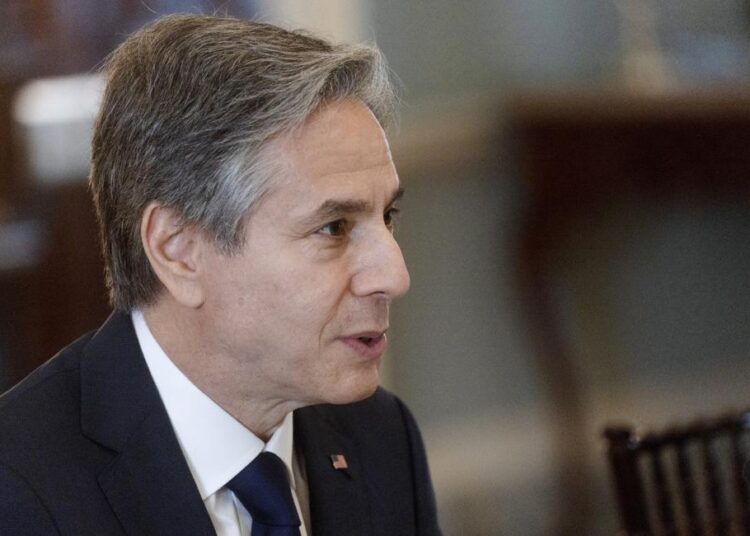WASHINGTON — Secretary of State Antony Blinken says the Biden administration is aiming to lead the international bloc opposed to Russia’s attack of Ukraine into a broader coalition to counter what it sees as a more serious, long-term threat to global order from China, according to AP.
In a speech outlining the administration’s China policy to be delivered on Thursday, Blinken will lay out a three-pillar approach to competing with Beijing in a race to define the 21st century’s economic and military balance, according to excerpts of the address released by the State Department.
While the US sees Russia and Russian President Vladimir Putin’s war in Ukraine as the most acute and immediate threat to international stability, Blinken will say the administration believes China poses a greater danger.
“Even as President Putin’s war continues, we will remain focused on the most serious long-term challenge to the international order – and that is the one posed by the People’s Republic of China,” Blinken will say.
“China is the only country with both the intent to reshape the international order — and, increasingly, the economic, diplomatic, military, and technological power to do it,” he will say. “Beijing’s vision would move us away from the universal values that have sustained so much of the world’s progress over the past 75 years.”
Thus, Blinken will lay out principles for the administration to marshal its resources, friends and allies to push back on increasing Chinese assertiveness around the world.
However, he will also acknowledge that the US has limited ability to directly influence China’s intentions and ambitions and will instead focus on shaping the strategic environment around China.
“We can’t rely on Beijing to change its trajectory,” Blinken will say in the speech, to be delivered at George Washington University. “So we will shape the strategic environment around Beijing to advance our vision for an open and inclusive international system.”
The speech follows President Joe Biden’s just-concluded visits to South Korea and Japan, where China loomed large in discussions. Biden raised eyebrows during that trip when he said that the United States would act militarily to help Taiwan defend itself in the event of an invasion by China, which regards the island as a renegade province.
The administration scrambled to insist that Biden was not changing American policy and officials said that Blinken will restate that the US has not changed its position. Blinken will say that Washington still holds to its “One China” policy, which recognizes Beijing but allows for unofficial links with and arms sales to Taipei, according to officials familiar with the speech.
Those officials said Blinken will make the case that the global response to Putin’s attack of Ukraine serves as a template for dealing with China’s efforts to mold a new and unpredictable world order to replace the rules and institutions that have guided relations between states since the end of World War II.
China, Blinken will say, has benefited greatly from that international order but is now trying to subvert it under the leadership of President Xi Jinping and the Chinese Communist Party.
The Biden administration has largely kept in place confrontational policies toward China adopted by its predecessor in response to Chinese actions in its western Xinjiang region, Hong Kong, Tibet and the South China Sea.
And, while the administration sees areas for working with Beijing, such as combatting climate change, it will not trade cooperation for compromising on its principles regarding human rights and rule of law, Blinken will say.






Discussion about this post